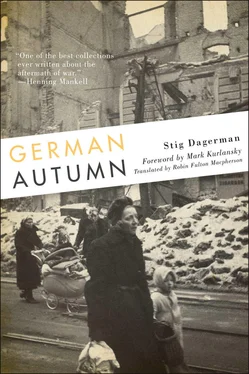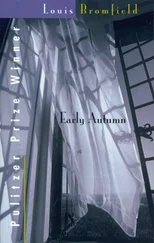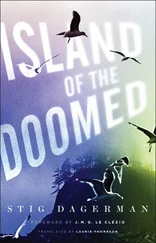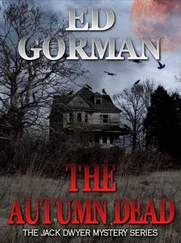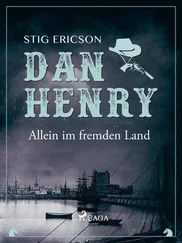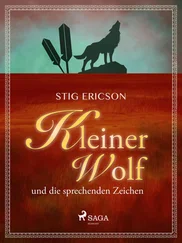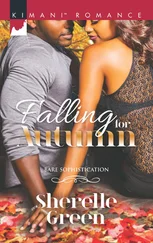At the dinner-table his mother, whose aristocratic pallor is a product of equal parts nobility and undernourishment, talks with the same pleasurable joy about the happiness of German suffering. We eat potatoes and kale because at the moment there is nothing else to eat, and the various members of the family urge one another to take a little more although the urging is strictly ironic. In this highly cultivated family hunger is put to use as a stimulant. The meal acquires a special significance because it is the second-last typewriter which is being eaten up. I eat little, at the most one key or two. Then the author returns to the last typewriter and the baroque, which he has never left, and I set out into the Ruhr which is as little baroque as possible. In the garden I meet the two schoolgirls on their way home: Maresi, christened after a story by Lernet-Holenia, and Victoria, named after the defeat of France in 1940, children who are pale chiefly from undernourishment. But as the car drives back through Düsseldorf it is a chubby baroque angel I seem to see displaying his ghostly wings against the darkening ruins.
One month later, in Hannover, in a painter’s studio. We talk about the collapse and about the new German art. I have seen some strangely bland exhibitions. The most interesting perhaps was one by a group of idealistically Communist artists, remarkable not as art but as propaganda. In a beautifully scripted display-programme they announce their devotion to the reorganization of the world into a huge trade union. All the social units we know at present are to be replaced by compounds with the word Werk —. We shall no longer talk about artists but about Werkleute, not about studios but about Werkstätte, not about nations but about Gewerkschaften. And so on. There was also a programmatic ruin — a quite unrealistic stage-set ruin in the background, in front of which were two playing children and flowers. Bad theatre — nothing else. At another exhibition the commonest motif was not ruins but the heads of smashed classical statues lying on the ground with the Mona-Lisa smile of defeat.
‘But when I paint ruins,’ says the painter in Hannover, ‘I do that because I think they are beautiful and not because they are ruins. There are masses of ugly houses which have become things of beauty after the bombing. The museum in Hannover really looks quite passable as a ruin, especially when the sun breaks through the shattered roof.’
Suddenly he grasps my arm. We look out on the shabby street. A black procession of nuns, one of the world’s most proper sights, shows up against one of the most improper: a lewd ruin with clinging pipes and gallows-like rafters.
‘I’ll paint that some day, not because it is a ruin but because the contrast is so verdammt erschütternd .’
Berlin, 3 February 1945, during a raid. That is a date in a chapter from a novel, published in a German magazine and one of the few instances of a young German writer coming to grips with the recently terminated suffering. It describes a tram-conductor’s last afternoon. He arrives home to find the house empty at an unusual time. His daughter is epileptic and anything may have happened. As a huge American raid closes in on Berlin the tram-conductor, Max Eckert, sets off on a terrible odyssey which ends at the underground station where his family in all probability were burnt beyond recognition together with thousands of others. In a fit of rage he attacks a policeman who greets him with ‘Heil Hitler’ and he is shot. It is a grim and chilling extract from a novel in progress, Finale Berlin, which turns out to be a collective novel of suffering, an interpretation of the terrible suffering of the bombed, a suffering which is common property to every German city-dweller and still lives in the senses as bitterness, as hysteria, as repugnance, as lovelessness.
Meanwhile the Swedish plane has climbed still higher over the German plight. We fly above white evening clouds and there are old-fashioned ice-ferns on the windows. But about three thousand metres under us, at a sharp angle now, there is a woman living only in order to write a big novel about another kind of suffering: that of the concentration camp prisoners. She has herself spent several years in a camp for political offenders. In that camp she belonged to the so-called Rilke Group, a small fanatical group of women who during the breaks and in danger of their lives would gather in a corner of the compound and in whispers read the poems of Rilke to one another. But it is not her own suffering she wants to write about, she wants to write about a suffering that was greater: her husband’s. He spent eight years in Dachau and is now an old man twenty years before his time: white-haired, tottering, hoarse. Now she is trying to train him to speak: in the evenings before they go to sleep, through the night when they lie awake, at meal-times; but he does not understand her, he does not understand how she should want to write about what he has suffered. And none of their friends and acquaintances understand either, not him who has just come back from a Russian camp and in sharp contrast to most home-comers has become enthusiastically pro-Russian on account of the fact that he was not shot the moment he was captured. He was taken at Stalingrad and now he never tires of relating how he and his fellow soldiers once festooned the railings of a bridge with naked Russian corpses for the fun of getting a unique snapshot. He will never come to understand that he was allowed to survive. The practical, extrovert Anny, who spent three years in political detention and who has just returned from a three-day 200-kilometre journey for a sack of potatoes, he does not understand either.
But the woman who wants to write says bitterly that in the course of a year she has been able to find out only the following about her husband’s sufferings: During the night someone has fled, and at dawn all the prisoners are lined up and made to stand at attention in the pouring rain all day and the next night and all the next day. Those who cannot hold out are lost. At the time when they normally get their food the escapee is brought back, the guards strap a huge drum on him and for the rest of the day he is made to parade up and down before his comrades, drumming a march, endlessly the same march, his own death-march. At midnight he collapses and that is the last they see of him.
It is a dreadful episode but it is not enough for a book and she never learns more. The suffering is suffered and then it should not exist any longer. This suffering was grubby, offensive, mean and small, and therefore one should not speak or write about it. There is too short a distance between writing and the worst kind of suffering; it is only when the suffering has become a cleansed memory that the time may be right. And yet she goes on hoping, each time she is alone with him she hopes to hear those words which will give her the strength to dip her pen in suffering.
Three thousand five hundred metres. The ice-ferns thicken on the windows. The moon has risen, a frosty ring round it. We are told of our whereabouts. We are flying over Bremen but Bremen is not to be seen. Lacerated Bremen is lying hidden beneath dense German clouds, as impenetrably hidden as the mute German agony. We fly out over the sea and on this rolling, marbly floor of clouds and moonlight we take leave of Germany, autumnal and icebound.
Stig Dagerman(1923–1954) was regarded as the most talented writer of the Swedish postwar generation. He published his first novel, The Snake, at age twenty-two, and within four years he wrote four novels, a collection of short stories, a considerable volume of journalism, and four full-length plays. He was at the forefront of Swedish letters in the 1940s, with critics comparing him to William Faulkner, Franz Kafka, and Albert Camus. He died at age thirty-one.
Читать дальше
